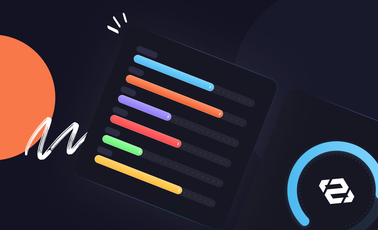The Best HR Software for Startups
People are the most precious assets of any organization. This is all the more so for startups, which usually have little more than bright ideas and a few even brighter people willing to turn those ideas into reality. A large, established enterprise can afford to make a few wrong choices in hiring people every now and then since it has the resources to make up for such a mistake. Startups, though, can ill-afford to do that, and have to hit the jackpot every time they hire someone until the business takes off.
The pressure for startups doesn’t end with hiring, either. The need to manage the workforce, instill a certain culture into them and sort out problems before they spiral out of control combine to make Human Resource Management one of the most critical areas for a startup. A well-designed HR strategy for a startup should ensure picking the right teammates, seamlessly integrating them to the existing structure and making sure that they are happy together.
Bootstrapped startups would be wise to leverage cloud-based SaaS for tasks like web site design, payment management, email marketing and time management on the cheap. Cloud-based HR software can provide a startup with similar added value. Although there are different versions of HR software such as Human Resource Information Software (HRIS), Human Resource Capital Software (HRCS) or Human Resource Management System (HRMS), here we will focus on the latter since it is the HRMS that offers the end-to-end capabilities from applicant tracking to employee onboarding to performance management to benefits and compensation management. We will start off with an account of the capabilities a good HR software equips startups with.
5 reasons why startups should invest in HR software
Implementing a Human Resource Management System (HRMS) in early-stage startups provides an affordable solution to managing HR tasks without the need for a full-fledged HR department, allowing founders to concentrate on business growth while cutting costs and paperwork. Additionally, HRMS enables data-informed decision-making by digitizing HR processes and generating key performance indicators from HR data, laying the groundwork for a data-driven company culture. Furthermore, HRMS enhances employee engagement by offering a transparent platform for self-service in HR processes, transforms performance reviews into a continuous, comprehensive evaluation process, and ensures the security of sensitive personal and business data, safeguarding against data breaches and legal complications.
Dedicated HR management at an affordable price
The small size of the team in an early stage startup usually does not justify a full-fledged HR department, and thus founders end up attending to HR-related tasks. HRMS can help with most of those tasks, from applicant tracking to scheduling interviews to payroll management, all of which would otherwise have to be done by a founder, and allows founders to focus on growing their business. In the meantime, it cuts the paperwork, reduces the time needed to create documents, lowers the HR headcount and saves the startup much-needed funds.
Data-informed decision-making made possible
Facing many daily challenges and being sometimes overwhelmed by the sheer number of tasks at hand, startups can hardly afford detailed record-keeping. HRMS solves this problem by digitizing the whole HR process and collecting, organizing and managing HR data in an efficient way. Stats like employee retention rates, absenteeism and leave requests collected on the system can be converted into meaningful KPIs, which can then be used to gauge how well the business is performing. These stats lay the foundation of a data-driven company where data will be informing the decision-making process.
Employee empowerment through increased visibility
HRMS offers a transparent platform where HR data can be viewed and modified by employees. HRMS gives employees increased visibility into the HR info, enabling them to self-serve. They can manage their leave requests, customize their training plans and update personal information on the platform. This not only introduces a more inclusive culture, but also helps reduce errors in data collection as the employees themselves would be providing and reviewing inputs.
Performance reviews transformed
The dreaded and usually unproductive annual performance reviews are turned into continuous performance management by HRMS. This new concept is built upon two ideas: Year round assessment of performance and 360-degree performance evaluation, which involves feedback from various stakeholders such as colleagues, clients and supervisors. This allows employees to make incremental changes to their performance without the need to wait for the annual performance review and learn from their mistakes before it is too late.
Data security taken care of
Whether it is paper-based or on cloud, an HR system hosts a plethora of highly sensitive data: Personal information on employees, their social security data, payment details etc. Data security and privacy built into HMRS ensures safety of sensitive business and personal data. This prevents data leaks, which could trigger lengthy legal processes in addition to the damage to the reputation of the company.
Top 5 HRMS for Startups
Gusto
Gusto brings its magic into your HR effort right from the start at the hiring stage. It creates offer letters and facilitates onboarding by creating with one-click accounts for the new team member. Payroll management can be a real hassle for startups. Luckily, Gusto offers a comprehensive solution package that automatically calculates, files and pays payroll tax and by doing so, ensures full legal compliance. When it comes to benefits management, Gusto really shines by offering fully-customizable benefit packages that will perfectly fit your company and the expectations of your employees. It also allows you to tailor your paid time-off policies according to the needs of your business and manage the leave requests made by your employees. The fact that time tracking is integrated with the payroll management saves the startup a lot of time and effort to bring those two in sync.
The downside of Gusto is that its most basic plan does not include popular capabilities such as time tracking and onboarding.
The basic plan with payroll and benefit management features costs $39 per month with an additional $12 per month for each person.
In order to have the time tracking and onboarding tools, you should opt for the middle plan which comes with the same base price of $39 per month but with an added $12 per month for every person.
BambooHR
BambooHR’s applicant tracking feature aims to smoothen the ride for both the company willing to hire and the applicant. The process starts with the one-click job posting on most popular job boards and social media sites. The applicant is kept up-to-date with continuous communication throughout the process. The system can draw up offer letters and allows the company to choose from among a group of templates to tailor the best onboarding experience possible. By making e-signatures an essential part of its system, BambooHR ensures a swift, stress-free onboarding process that does not waste paper.
Once in, all the information regarding an employee is gathered on a single database, which minimizes the risk of error, facilitates integrations with other applications and gives the employees visibility into their data. BambooHR prides itself on its reporting and data analytics capabilities, which are increasingly important in today’s data-informed management style. Its reports even have customized viewing option, keeping sensitive information out of the reach of people who should not see it.
BambooHR is offered in two plans: Essential and Advantage. The prices for these plans are not publicly available and potential customers are invited to ask for a quote. Some of the features like applicant tracking, onboarding and electronic signature are solely available with the Advantage plan and still others are offered as add-ons, which together make up the few cons of the system.
Zenefits
Zenefits offers an integrated HR platform that can handle every task related to an employee from the first day it joins the company to the day the two part ways. Zenefits capitalizes on its partnership with Checkr to provide background checks on applicants. It makes a seamless onboarding process possible, with the employee data syncing with the payroll automatically. Promotions, certain decisions regarding leave management and terminations can be arranged by way of automated workflows, freeing up a lot of time for a startup.
Zenefits particularly excels in two areas thanks to two features that differentiates it from rivals: The first one, compensation management, provides benchmark figures for employee salaries. It uses its database of salaries collected from more than 100,000 employees across more than a hundred industries and provides its customers with information on what similar companies pay for an employee of comparable skill and experience level in a particular location or industry. This arms the Zenefits customers with the necessary information to make the best offers to the best candidates. The second difference maker in Zenefits toolkit is employee performance management. This suite allows the company to offer customized goal management and 360-degree feedback for each employee.
Zenefits comes with three pricing plans: Essentials for $8 per month per employee, Growth for $14 per month per employee and Zen for $21 per month per employee. The most affordable plan comes with popular features such as automated onboarding and time-off tracking, unlike Gusto and BambooHR, which do not offer those in their base plans. For its highly competitive compensation management and employee performance management features, customers should at least opt for the Growth plan, though.
Cezanne HR
Cezanne HR offers a modular platform that lets customers pick and choose the features they need the most and change the configuration of the platform as they go. In addition to traditional HR functions such as onboarding, time tracking or performance management, Cezanne HR offers specialized modules like the Career & Succession Planning Software. This particular module helps a company develop its talent pool to match company goals and groom certain people for certain roles. The unexpected resignation of a key employee can really test the resilience of a company. However, building a talent pipeline around Cezanne HR’s Career & Succession Planning module makes it possible for a company to quickly promote a qualified successor and weather the storm. Understanding the skill set of your employees and nurturing them in a pipeline framework render your company resilient when a key employee quits unexpectedly.
Cezanne HR can be considered as the embodiment of the maxim “think global, act local” as it not only offers free-of-charge translations in 10 different languages, but also provides multi-currency record-keeping and processes that can be configured according to local needs. Its multi-language services and compliance with local laws and regulations in different countries make it the HR software of choice in the age of remote work and a global workforce. Bringing your foreign employees and freelancers into the fold is much easier with an HR platform tailored to their needs.
Cezanne HR’s pricing is contingent on the modules picked and the active headcount of the customer. Prices start around £200, which might be a bit steep for a startup. However, the modular approach might fit the growth curve of a bootstrapped startup since founders could add different features as needs arise, and its multi-language interface could be the right call for startup leveraging talent from different parts of the world.
Freshteam
If you are determined to perfect your recruiting game, Freshteam HRMS can be the tool you are looking for. Its Applicant Tracking feature offers more than a hundred job description templates and is built to leverage job boards, social media and email automation to bring in the best talent out there. It builds a funnel from the candidate sourcing stage to applicant engagement to offer letters, and in that sense, Freshteam HRMS is a recruitment tool first and foremost.
In addition to recruiting, Freshteam allows you to monitor and manage time-offs. It even lets you set up automated workflows for time-offs by defining the rules for them and identifying the necessary documents to be uploaded. However, the one area Freshteam truly excels in is reporting. The platform offers 7 curated reports on topics such as interviews, job postings and offers and hires, all of which can serve as metrics to evaluate your recruitment performance with.
In terms of pricing plans, Freshteam looks more startup-friendly than most of its competitors as it offers a free plan for up to 50 employees and 3 published job postings.
Its second plan, the Growth, charges a monthly platform fee of $71 and $1.20 per employee per month. This plan comes with recruitment automations and HR reports and analytics.
The Pro plan charges a monthly platform fee of $119 and $2.40 per employee per month. On top of the Growth plan, Pro plan offers advanced features like Talent Pool Management, multiple language support and offer management.
The Enterprise plan charges a monthly platform fee of $203 and $4.80 per employee per month and comes with a dedicated account manger, one click data export and advanced leave exports, in addition to the features offered in the lesser plans.
Besides all these capable platforms, if you think your startup does not need complicated and pricey HR software, Peaka offers you a free-of-charge leave management template that is easy-to-use and effective. Our template helps you organize and manage the leave requests made by your employees while saving you time when you should be focusing on getting your business up and running. This is just a working example of what is possible with Peaka—for the rest, you need to roll up your sleeves and jump in here.




 Please
fill out this field
Please
fill out this field









